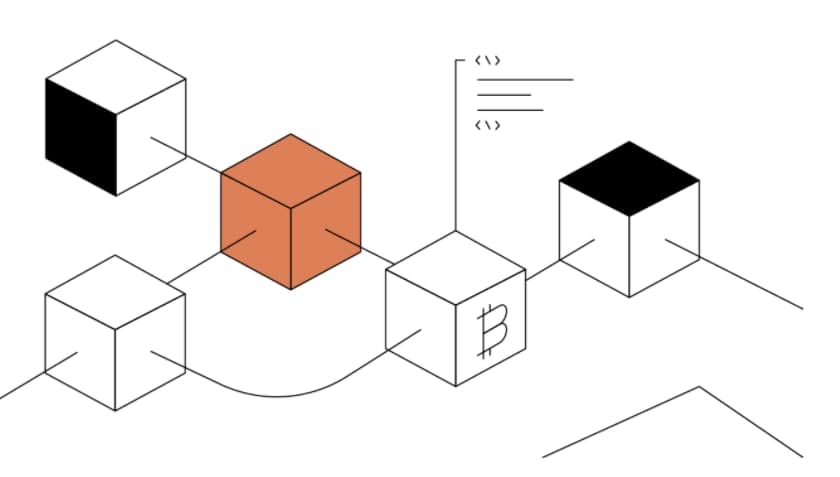Что такое блокчейн?
🟩 Что такое блокчейн?
Технология, лежащая в основе криптовалют.
Цепочка блоков? Да, это наука, которая меняет наш образ жизни практически во всех сферах.

🟩 Технология блокчейн - это распределенная бухгалтерская книга, объединяющая децентрализованную сеть, в которой пользователи могут отправлять транзакции и создавать приложения без участия центрального органа или сервера. Блокчейн лежит в основе таких сетей, как Bitcoin и Ethereum, а также тысяч приложений, которые имеют полезные свойства и обеспечивают ценность в таких различных отраслях, как финансы, мода и игры. Благодаря постоянным инновациям блокчейн может стать основополагающей технологией в нашем цифровом будущем.
Проще говоря, блокчейн - это общая бухгалтерская книга данных - например, транзакций или кода - которые объединяются в блоки, проверяются и впоследствии принимаются как часть блокчейна сетью распределенных пользователей с помощью механизма консенсуса. Поскольку каждый блок проверенных данных содержит уникальную подпись данных из предыдущего блока, они неразрывно связаны между собой в "блокчейн". Механизм консенсуса на основе сети - это способ, с помощью которого протокол блокчейн согласует, как будет работать его базовая техническая архитектура.
Децентрализованная природа сетей блокчейн делает возможными такие отрасли, как криптовалюта и децентрализованные финансы (DeFi), о чем свидетельствуют Bitcoin и Ethereum, и поддерживает тысячи приложений во всем спектре бизнеса и человеческого взаимодействия.
Блокчейн-сети управляются системами согласованных стимулов. Хорошо функционирующая публичная блокчейн-сеть требует наличия сообщества пользователей, операторов узлов, разработчиков и майнеров, которые играют роли во взаимовыгодной экосистеме сети. Например: Во многих блокчейн-сетях вознаграждения, такие как новая криптовалюта или плата за транзакции, мотивируют участников сети соревноваться за подтверждение транзакций и создание новых блоков. Такая структура поощрения и подтверждения транзакций также защищает сеть от преступной или мошеннической деятельности.
Интеллектуальные корни блокчейна можно проследить до криптографов в начале 1980-х годов. Однако современная индустрия блокчейна началась с Биткойна, однорангового (P2P) протокола цифровых платежей, выпущенного в январе 2009 года псевдонимным создателем Сатоши Накамото. Родная криптовалюта биткойна, bitcoin (BTC), является крупнейшей криптовалютой по рыночной капитализации и наиболее известным применением технологии блокчейн. Ethereum, запущенная в 2015 году, является второй по величине криптовалютой по рыночной капитализации и развила технологию дальше. Ethereum основывается на основных принципах технологии блокчейн Биткойна и преследует другую цель: поддержка экосистемы децентрализованных приложений (dApps), платформ и цифровых активов.
Существует несколько разновидностей блокчейна, каждая из которых подходит для разных случаев использования. Например, Bitcoin и Ethereum - это публичные блокчейны, которые имеют открытый исходный код и позволяют любому использовать их технологию или строить на их основе, устраняя необходимость в доверенной третьей стороне для облегчения транзакций. В качестве альтернативы существуют частные блокчейны, которые ограничивают круг участников сети с помощью системы разрешений и часто используются корпорациями, стремящимися повысить эффективность внутрифирменных операций.
Ключевые особенности технологии блокчейн
Блокчейн опирается на децентрализованную сеть пользователей для подтверждения и записи транзакций, а не на центральный орган. Эта особенность делает транзакции блокчейн постоянными, быстрыми, безопасными, недорогими и защищенными от взлома.
🟩 Постоянство: сети блокчейн работают глобально, 24 часа в сутки 7 дней в неделю.
Быстрота: Транзакции отправляются одноранговым способом непосредственно от отправителя к получателю без необходимости проходить через одного или нескольких посредников.
Безопасность: Распределенная сеть узлов, лежащая в основе блокчейна, обеспечивает коллективную защиту от взломов и сбоев.
Недорого: Без централизованных посредников, стремящихся к получению ренты, платформы блокчейн работают с меньшими затратами.
Защита от взлома: Данные прозрачны и не могут быть изменены после того, как они будут внесены в бухгалтерскую книгу, что защищает блокчейн от мошенничества и других злонамеренных действий. Аналогичным образом, любой человек может просматривать транзакции, представленные в публичных сетях блокчейн.
🟩 Отрасли, которые получают выгоду от сетей блокчейн.
Технология блокчейн оказалась полезной в самых разных отраслях - от финансов до цепочки поставок, от недвижимости до азартных игр. Используя смарт-контракты - т.е. самоисполняющийся код, хранящийся и доступный в неизменяемой блокчейн-сети, - компании и частные лица могут избежать расходов и зачастую двусмысленности, связанных с привлечением третьих сторон для выполнения рутинных дел.
Технология блокчейн также хорошо подходит для платежей, о чем свидетельствуют биткоин, bitcoin cash (BCH), litecoin (LTC) и множество других криптовалют, ориентированных на платежи. Блокчейн во многих отношениях более эффективен и глобально доступен, чем традиционные сторонние поставщики платежей.
Author Cryptopedia Staff